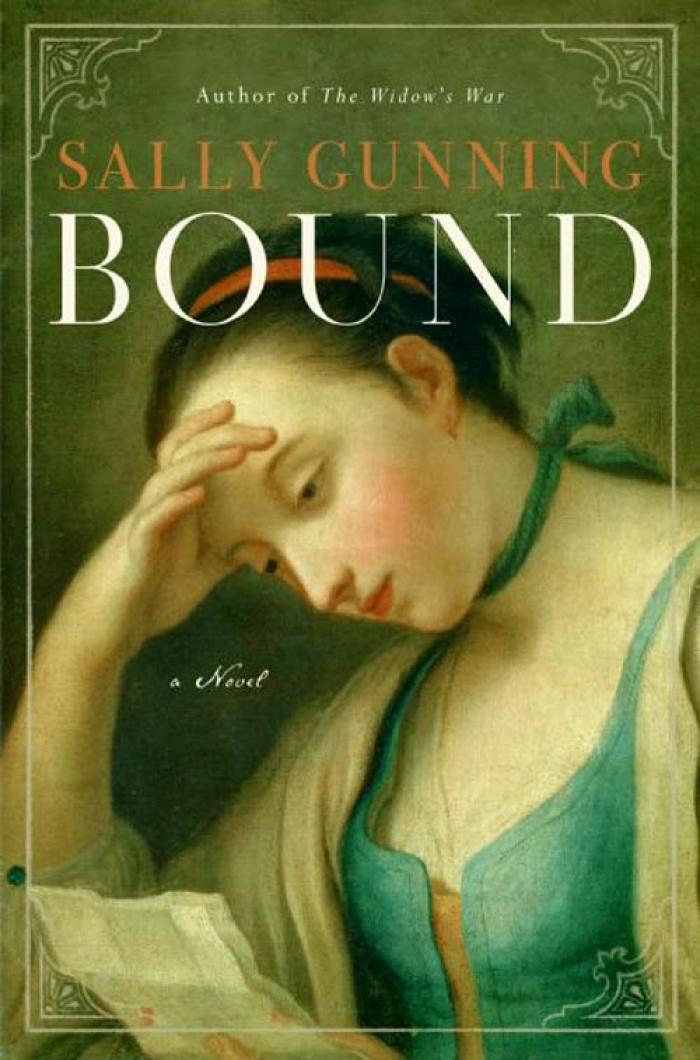There are at least five good reasons to read Bound, a new novel by Brewster resident Sally Gunning set for release in the spring.
The story of a 15-year-old British girl indentured in the New World of the 1750s is a captivating read, written by an author well-trained in taut storytelling and well-versed in the pre-Revolutionary War period of Britain’s Massachusetts Bay colony, including Cape Cod.
Also, the story of Alice Cole, a seven-year-old British immigrant indentured by her father as their ship lands in Boston, brings to life the customs and crafts of everyday living on Massachusetts Bay from Boston to Satucket, a Cape village similar to Brewster where Gunning’s family has been settled for more than two hundred years.
Then there is the matter of women living in reduced status, having to fight for ownership of their bodies and beliefs. This 307-page William Morrow book mirrors the role of women today in many nations. For example, James H. K. Norton’s current lecture series on Afghani women, Under the Burqa, at the Vineyard Haven library, resonates throughout Bound. Same problem, different millennium.
The story also examines the life of Alice, now a 15-year-old runaway on Cape Cod, who must battle the demons of parental betrayal, sexual abuse at the hands of her former master and the rites of passage to womanhood. Simmering constantly are the early signs of rebellion in a beleaguered colony.
The book’s gemstone, however, is Ms. Gunning’s wonderfully intense description of Alice’s struggle of spirit, without benefit of Prozac and group therapy, to risk being trustful, to choose good, to remain based in reality and to find happiness in a war of literal personal survival.
As a best-selling mystery writer (her titles include the word water — icy, muddy, dirty, fire and deep) and short story writer (The Perils of Pond Scum), Ms. Gunning can craft suspense and allows the characters to go where they will. I defy adult readers, particularly parents, to read this book without ginning up really good advice for Alice as she searches for her own right way.
Perhaps because the novel’s setting is close to us and we recognize descriptions of Cape dirt roads and Boston streets, Bound promotes a comparative view of life today on the seacoast against two hundred and fifty years ago. We can smile wryly at our common comment that “I don’t have a thing to wear” as Ms. Gunning describes the hours and days Alice spends treadmilling hemp into thread to become homespun garments and pulling and cleaning wool to loom and weave into sturdy sweaters.
The reader will be struck also by differences in communication and interaction. The author has an ear for colonial era speech and patterns and for its intentionality of conversation and writing. Bound shows that colonial people thought before they spoke or wrote. They paid attention to the gestures and behavior of their friends and colleagues. Typically they meant what they said because clear conversation was of pragmatic importance in living their lives. Ms. Gunning thankfully does not use “thee,” “thou” or “wherefore” in the colloquial speech of her characters, but her speakers’ sentences also do not trail off in the catch-all “you know” or “whatever” as we speak today.
Indenture, Ms. Gunning notes in the back of the book, is in fact the earliest form of slavery in this country, predating the arrival of African chattel slaves. While the romantic notion of indenture creates the image of a bright young boy or girl passed into the keeping of a kindly master tradesman to flourish in wisdom and grace, the reality was that indentured people were assets, subject to the whim of their masters and their contracts could be bought and sold as Alice’s was. Slaves and indentured servants worked side by side after Massachusetts became the first colony to legalize slavery.
Ms. Gunning reports that an estimated 27 million people around the world at present are living in slavery, including indenture or debt bondage. Indenture or debt bondage, including in the United States, is by far the predominant condition of modern slavery, more than at any time in history.
Make that six good reasons to read Bound.







Comments
Comment policy »